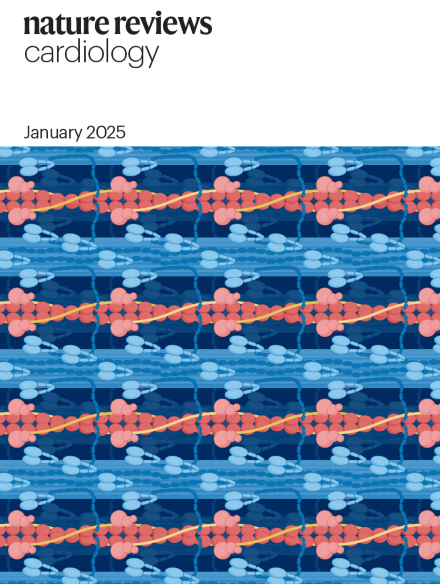
Advertisement
-
-

Targeting macrophage–fibroblast interactions in the failing heart
Macrophage–fibroblast interactions have a central role in cardiac fibrosis. In response to left ventricular pressure overload, CCR2+ cardiac macrophages acquire a fibrogenic phenotype, secreting IL-1β and promoting the activation of a FAP+ POSTN+ fibroblast subpopulation through the transcription factor MEOX1. Macrophage-derived fibroblast-activating cytokines (such as IL-1β), growth factors and matricellular proteins contribute to the pathogenesis of heart failure.
-
-

Anticoagulants
Trending - Altmetric
-
Myocarditis after COVID-19 mRNA vaccination: clinical observations and potential mechanisms
-
Contemporary pharmacological treatment and management of heart failure
-
Neuropsychiatric adverse effects signal the end of the line for rimonabant
-
Targeting macrophage–fibroblast interactions in the failing heart












